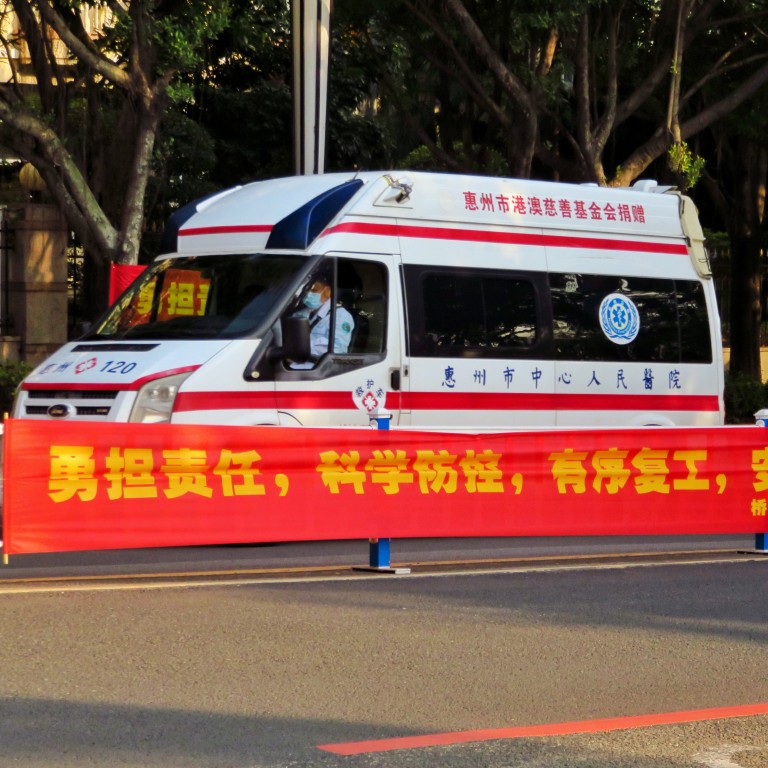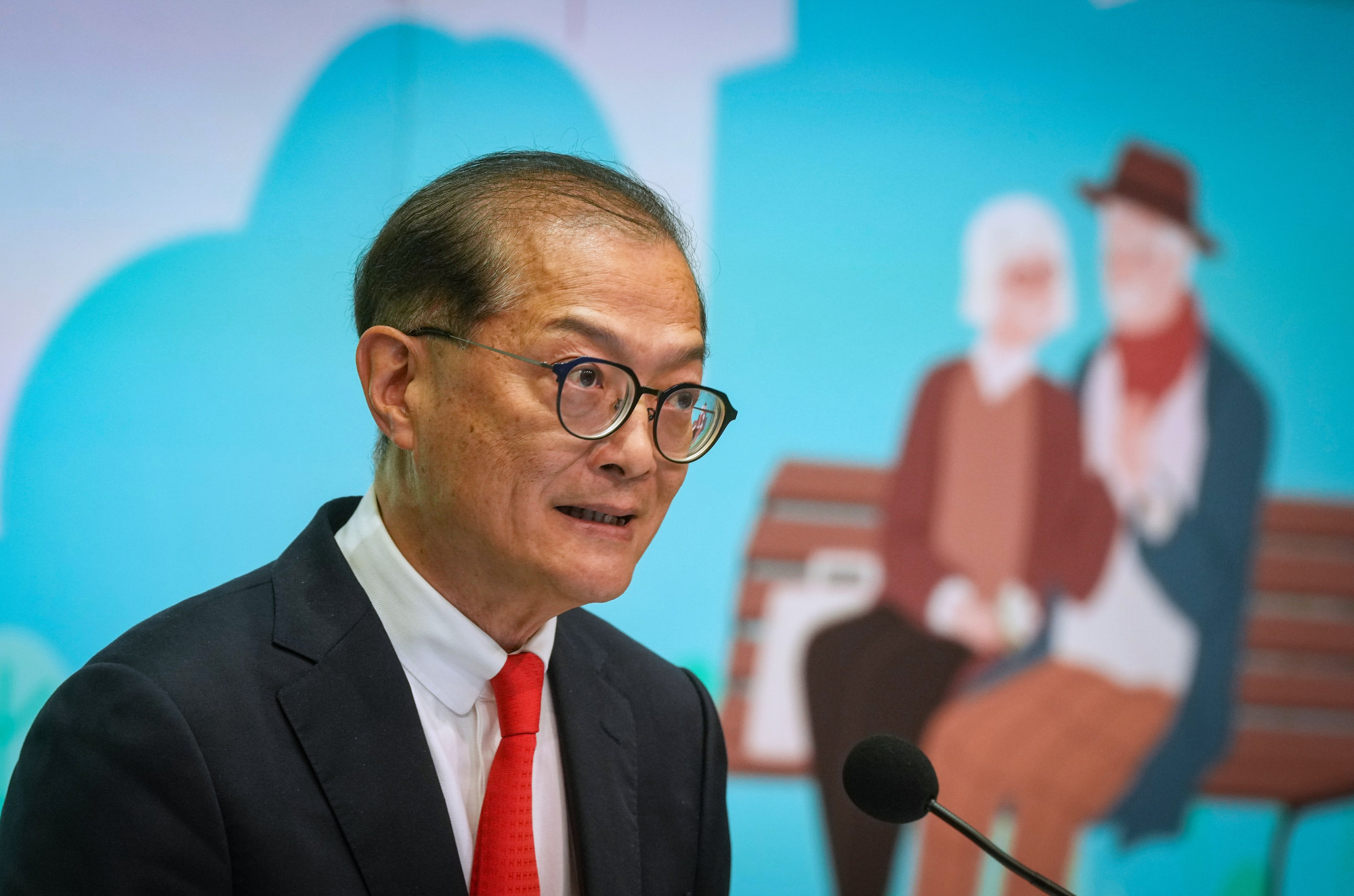
New pilot cross-border mercy mission hospital transfer scheme to be extended to non-Hongkonger patients, health secretary says
- Cross-border ambulance transfer service pilot scheme to include non-Hongkonger patients from mainland China and Macau
- Service, which will allow direct ambulance transfers across the border, expected to start by end of month or early May
Lo Chung-mau, the health secretary, was speaking as a pilot scheme prepared to launch, probably by the end of the month or in early May.
“The direct cross-border ambulance arrangement will not only be limited to Hongkongers,” he said after an antechamber exchange session with members of the Legislative Council.
“We should consider the requirements of anyone with medical needs, even those who are not Hong Kong residents.”

The bay area is Beijing’s plan to link Hong and Macau with nine southern mainland cities to create an economic powerhouse.
Lo said authorities would only consider patient welfare and ignore the place of origin of those in need of care.
He added that Hongkongers and non-Hongkongers could require cross-border medical services, as some treatments, such as those for serious heart disease or paediatric conditions, were available in Hong Kong but not in neighbouring cities.
“Hong Kong has quality medical services – if we have the capacity in certain areas, we will help neighbouring cities and their residents,” he pledged. “I don’t see the need for ruling out this possibility.”
Lo confirmed the trial scheme, which will run for a year, was expected to start in the next few weeks.
The cross-border ambulance service was first floated in the Outline Development Plan for the Guangdong-Hong Kong-Macau Greater Bay Area, published by Beijing in 2019.
Lam told lawmakers in 2019 the plan would be for Hongkongers living across the border only.
‘Cross-border health services can ease burden on Hong Kong’s public hospitals’
Doctors and patients’ groups said at the time they were concerned that including non-Hongkongers in the programme would increase the strain on city public hospitals.
The latest details on the scheme, submitted by the Health Bureau to Legco on Tuesday, said the University of Hong Kong-Shenzhen Hospital on the mainland and Centro Hospitalar Conde de São Januário in Macau would be the first to send patients with particular medical needs to Hong Kong.
The service will allow a point-to-point transfer across the border between designated hospitals, unlike the present arrangement where patients are switched to a Hong Kong ambulance after they are taken to the boundary line by a mainland vehicle.
Lo said the present arrangements were “far from satisfactory” because they raised concerns about safety and quality of care for patients.
The bureau said doctors would consider several criteria before they decided to transfer patients to Hong Kong. These included whether the patients had clinical conditions that required cross-border transfer for treatment or rehabilitation.
The journey would also have to not cause extra risks to patients and those transferred would have to be unsuitable for other types of cross-border transport.
Patients who could be discharged soon, or could continue to be treated in mainland or Macau hospitals, would not be eligible for cross-border transfer. The bureau said expected cases eligible for the scheme would number in the dozens a year.
Lo said the government was drawing up arrangements to ensure the vehicles, medical personnel, equipment and medicines used would be legal for use on both sides of the border.
Doctors recruited abroad for Hong Kong’s hospitals mostly junior level
Mainland and Macau doctors who accompany patients on ambulance transfers will also be given limited registration status by the Medical Council of Hong Kong to allow them to carry out medical procedures on the ambulance legally as it moves through the city.
Council member Alex Lam Chi-yau said about 10 doctors from each of the two hospitals in Shenzhen and Macau would be making applications for limited registration.
Lam, also the chairman of campaign group Hong Kong Patients’ Voices, agreed that life-saving should be a priority for the new service.
He said the government could consider the introduction of an option to send non-Hongkonger patients to private hospitals in the city, given that they already had to pay the more expensive charges for non-locals at public hospitals after being transferred.
“If they can afford the charges, why don’t they go to private hospitals?” he asked.
Tim Pang Hung-cheong, of campaign group the Society for Community Organisation, called for more details on what type of patients would be eligible for transfers to be released.
Dr David Christopher Lung, president of the Hong Kong Public Doctors’ Association, predicted only a small number of non-Hongkongers would use the ambulance service, based on present experience of treating patients referred from Macau.
He said non-residents who came to Hong Kong usually required advanced care such as bone marrow transplants or treatments for rare diseases.
Lung added that doctors could also benefit from the experience gained through the treatment of rare and difficult conditions.
“Treating them can also help doctors, who can learn from more cases,” Lung said.

